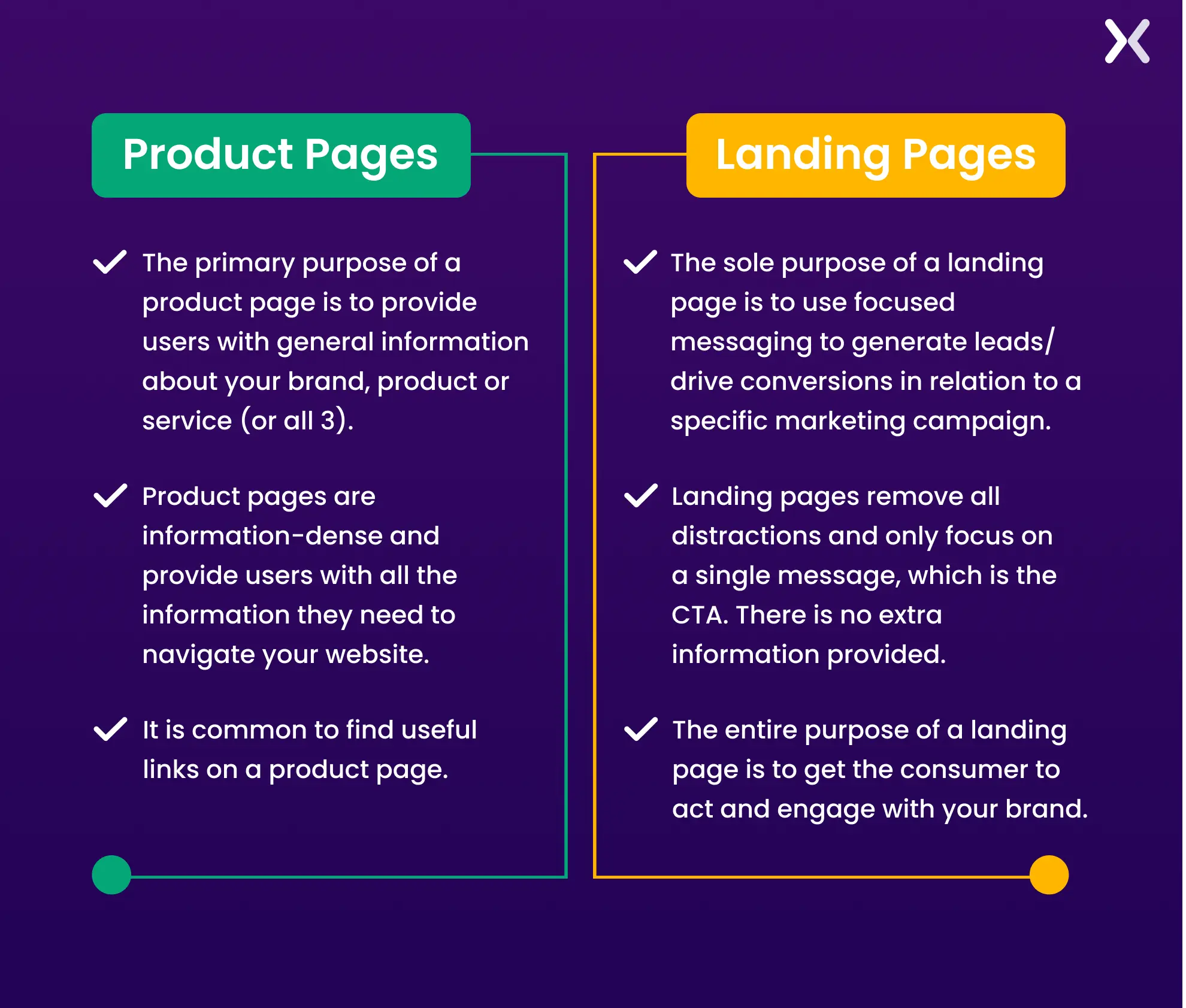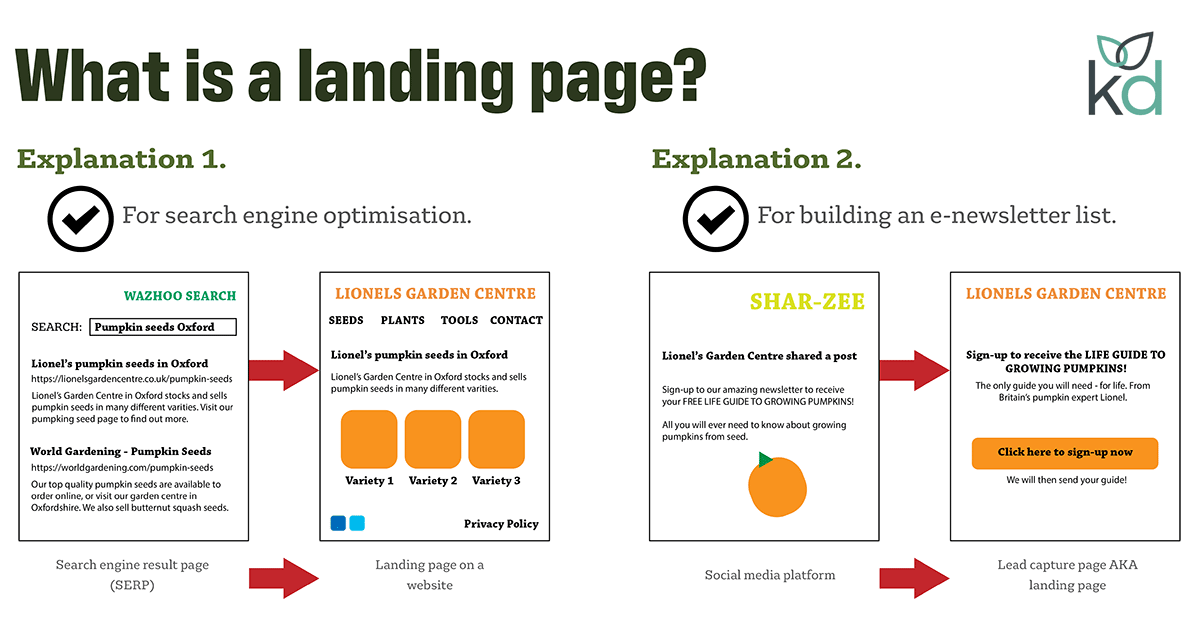Have you ever found yourself wondering about the difference between your website and your landing page? You’re not alone.
Many people think they’re the same, but they serve distinct purposes. Understanding this difference can be the secret to improving your online presence and driving more conversions. Imagine if you could optimize your digital strategy simply by knowing when and how to use each one.
You’ll discover the unique functions of your website and landing page and how each can be a powerful tool in your marketing arsenal. Stick around to unlock the potential of these two digital assets and transform how you connect with your audience.
Website Purpose
A website often has a multi-page structure. This means it has many pages. Each page offers different information. Think about pages like Home, About Us, and Contact. A website provides a lot of details. It covers many topics. Users can explore and learn more. Websites are like books with many chapters.
Websites have comprehensive content. This means they have a lot of text. They explain things in detail. Users can find everything they need. Websites are great for those who want to dive deep. They are ideal for sharing knowledge. Every page has a specific purpose. Together, they create a whole picture.

Landing Page Purpose
A landing page always has one clear goal. It could be to sell a product. Or it might ask for an email sign-up. Every element on the page helps this goal. There are no distractions. Users know exactly what to do. This makes landing pages powerful.
Messages on a landing page are specific. They speak directly to the user. They use words that the user understands. This makes users feel connected. It answers their questions. It gives them reasons to act. The message is clear and focused. Users get the right message fast. This helps them make decisions.
Design Elements
Websites and landing pages serve different roles. Websites offer detailed information and multiple pages. Landing pages focus on one goal, like collecting emails or promoting a product. Understanding these differences helps in designing effective online strategies.
Navigation Features
Websites often have many links. They guide users through different pages. This includes home, about, and contact pages. Websites need a menu bar. It helps find information easily. Users can see all options at once.
Landing pages are different. They focus on one goal. This goal could be signing up or buying a product. Landing pages have less navigation. They may have one button or link. This helps keep users focused. They don’t need to search much.
Visual Hierarchy
Websites use many elements. Text, images, and videos are common. They must be organized well. Important parts should be big and clear. This helps users find key information first.
Landing pages are simpler. They use a strong visual hierarchy. Important messages are at the top. Big headlines grab attention. Users see what matters quickly. This makes the goal clear and easy to reach.

Content Strategy
Your website has lots of information. It tells many things about your business. You can find details about products, services, and the team. It is like a big book with many chapters. Each page gives different details. People can learn a lot here. It helps them understand your business better.
A landing page focuses on one goal. It wants people to do one thing. This might be signing up or buying something. The call-to-action is clear and easy to see. It is usually in a bright color. It tells people what to do next. It is like a big sign saying, “Click here!” This makes it simple for visitors to follow.
Audience Engagement
Understanding your audience is key. A website guides users through multiple pages. Each page serves a purpose. Landing pages focus on one task. They aim for a single action. Mapping helps see their path. Find where they click. Know what they like. It’s like reading a map. This helps improve their journey.
Making users take action is important. A website has many goals. They educate, inform, and entertain. Landing pages have one goal. They ask users to sign up or buy. Simple and clear. Optimize pages to boost actions. Test designs. Change words. Use images. Small changes can help. See what works best.
Seo Considerations
Using the right keywords is vital. Keywords help search engines find your page. A website needs many keywords. A landing page uses fewer keywords. Focus on the most important ones. This makes your page easy to find. Use keywords naturally. Avoid stuffing too many keywords. This can harm your SEO.
Fast page load speed is crucial. Slow pages lose visitors. Websites often have more content. This can slow them down. A landing page is simpler. It loads quicker. Keep images small. Use simple code. Test your page speed often. Make adjustments if needed. Fast pages rank better in search engines.
Performance Metrics
Websites often attract diverse traffic. People come for different reasons. Blogs, shops, and more. Landing pages focus on specific traffic. They attract visitors for one purpose. Usually for a special offer. Knowing the source of traffic is crucial. It helps improve strategies. Websites use tools like Google Analytics. Landing pages often use conversion-focused tools. Each tool shows different insights. Understand who visits your site. It helps you grow.
Websites have low conversion rates. They offer lots of information. Visitors often browse without buying. Landing pages aim for high conversions. They have a clear call to action. Fewer distractions mean more focused visitors. It’s vital to track these rates. Improve your page by testing designs. Small changes can make a big difference. Understand what your visitors want. This boosts your success.

Frequently Asked Questions
Do I Need A Website If I Have A Landing Page?
A landing page may suffice for specific campaigns or goals. A full website offers more content, credibility, and functionality, enhancing online presence. Evaluate your needs and objectives to decide if a website complements your landing page strategy effectively.
Is A Landing Page Separate From Your Website?
A landing page is often separate from your main website. It focuses on a specific campaign or offer. Designed for conversions, it usually lacks navigation links. Landing pages target specific audiences, boosting engagement and sales. They complement your website’s marketing strategy, enhancing user experience and achieving specific goals.
Does A Landing Page Count As A Website?
A landing page is not a full website. It serves as a single web page focused on specific campaigns or conversions. It is designed to capture leads and drive sales efficiently. Websites are broader, offering multiple pages and content for comprehensive information and engagement.
Can A Landing Page Act As A Website?
A landing page can act as a simple website. It focuses on specific goals, like lead generation or sales. While not as extensive as full websites, it effectively targets specific audiences. Customization and optimization make it a powerful tool for marketing campaigns.
Conclusion
Understanding the difference between websites and landing pages is essential. Websites offer broad information. Landing pages focus on specific goals. Each serves unique purposes in digital marketing. Websites build brand presence. Landing pages drive conversions. Knowing these distinctions helps tailor your online strategy.
Focus on user experience and clear messaging. A well-designed website and landing page can boost engagement. They work together to achieve your objectives. Evaluate your needs and choose wisely. This ensures your online presence is effective and strategic.


